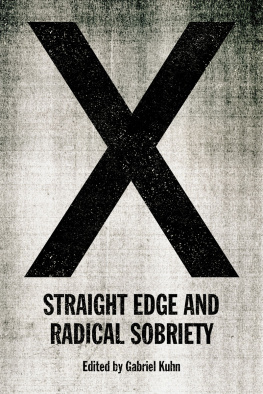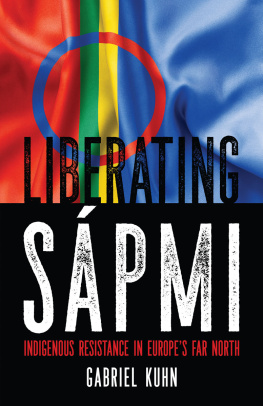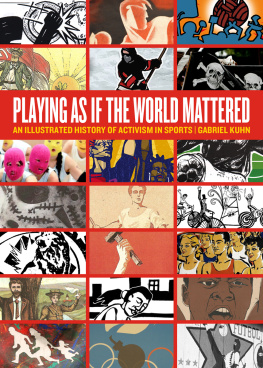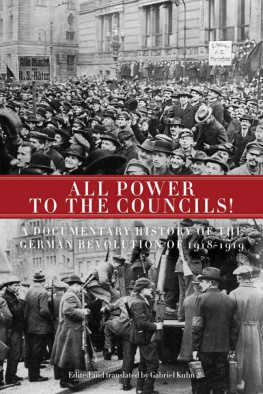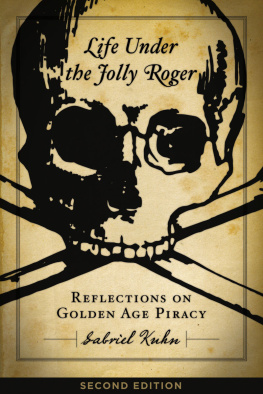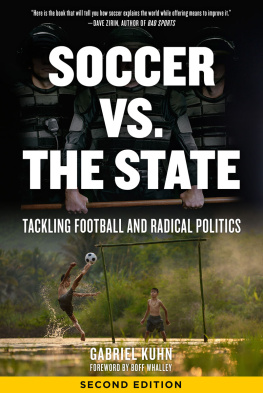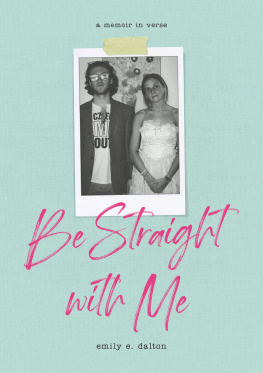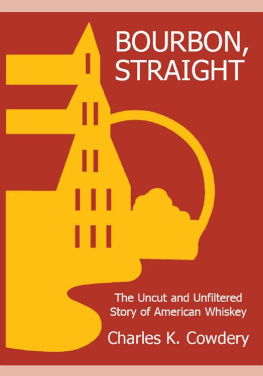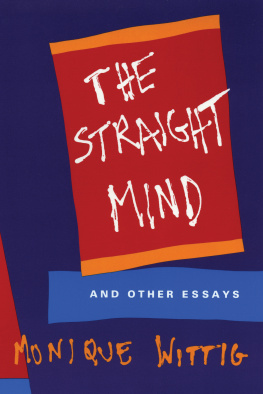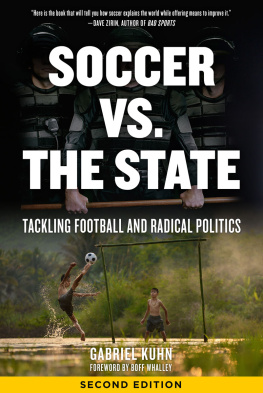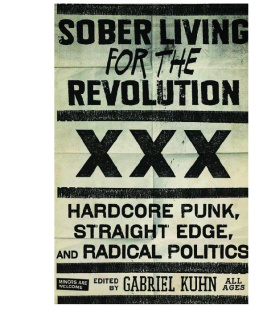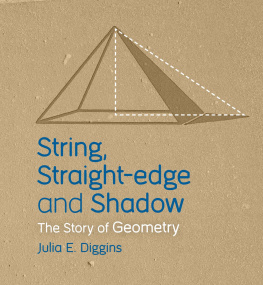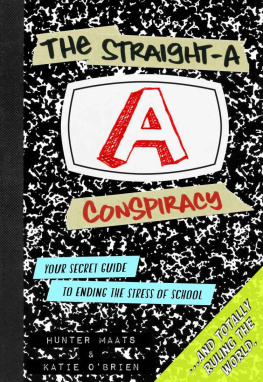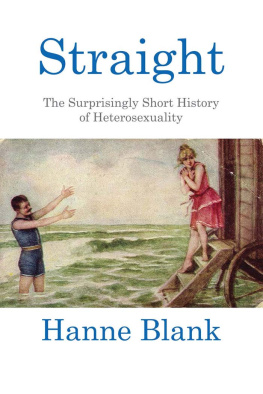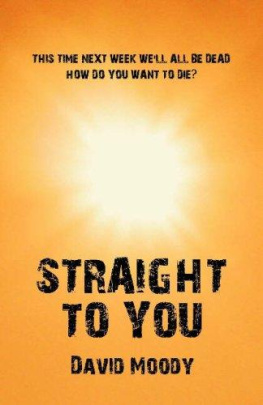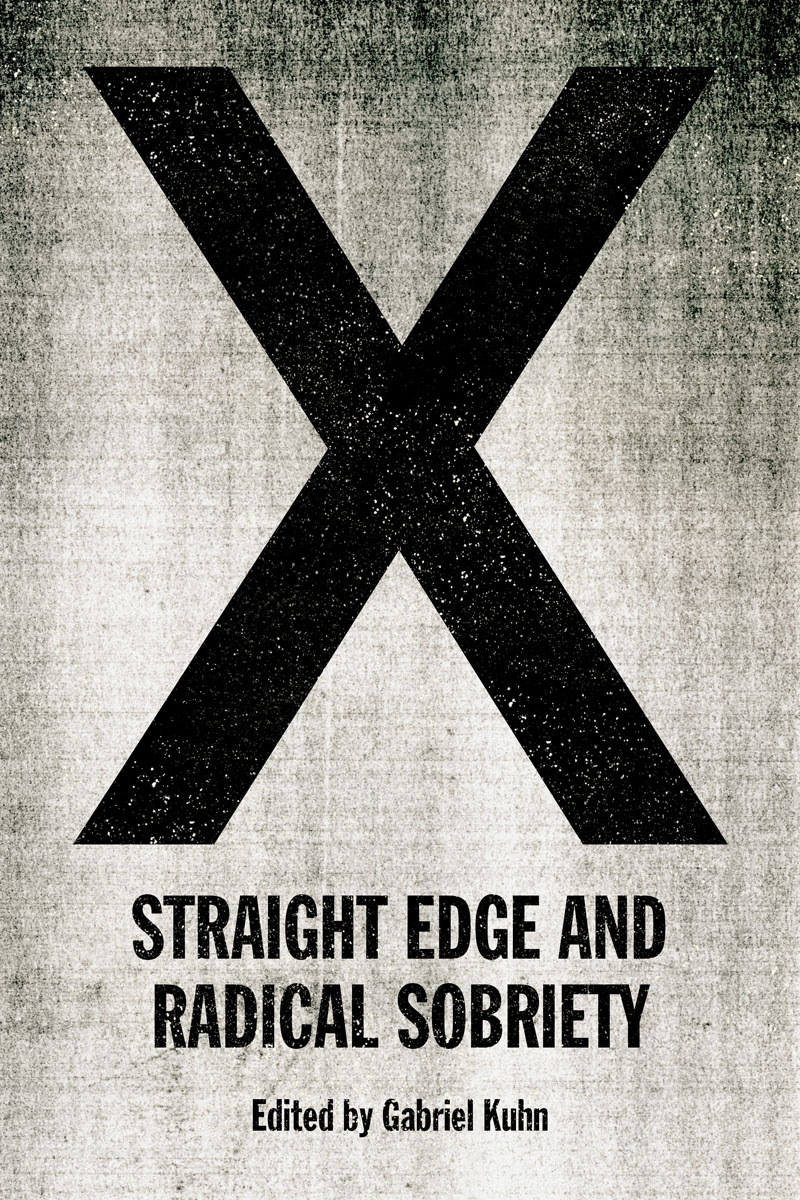
Straight edge culture is very diverse, and parts of it had always a strong emphasis on emancipation and equality, also with regard to gender and sexuality. Its good to have a book acknowledging this.
Jenni Ramme, Emancypunx Records

Forget the cliches, straight edge isnt just about buff white dudesKuhns book shows that its a multifaceted social movement rooted in the intersection of DIY culture and political resistance.
Lori Black Bear, Sprout Distro

Sobriety has historically played an importantand often overlookedrole in many social movements. As usual, Gabriel Kuhn tackles his topic with breadth and finesse. He manages to simultaneously address internal issues in straight edge circles as well as demonstrate the relevance of sobriety and straight edge outside of the relatively narrow confines of punk and hardcore scenes. Highly recommended and a great way to take necessary conversations about addiction and struggle for social justice to the next level.
Anthony T. Fiscella, author of Varieties of Islamic Anarchism

Kuhn once again brings a razor-sharp eye to straight edge, powerfully illuminating the gamut of liberatory possibility in the choice to not only reduce harm to oneself and this world but, crucially, experiment with caring, consensual social relations and spaces too.
Cindy Milstein, editor of Rebellious Mourning: The Collective Work of Grief
X: Straight Edge and Radical Sobriety
Edited by Gabriel Kuhn
2019 the respective authors
This edition 2019 PM Press.
All rights reserved. No part of this book may be transmitted by any means without permission in writing from the publisher.
We have made every effort to identify and properly credit the images used in this book, but it is possible that errors and omissions may inadvertently remain. Notice of such should be sent to the publisher so that the necessary corrections may be made in any future editions.
ISBN: 9781629637167
Library of Congress Control Number: 2019945458
Cover by John Yates / www.stealworks.com
Interior design by briandesign
10 9 8 7 6 5 4 3 2 1
PM Press
PO Box 23912
Oakland, CA 94623
www.pmpress.org
Printed in the USA.
CONTENTS
INTRODUCTION
Gabriel Kuhn
Ten years ago, I was working on the book Sober Living for the Revolution: Hardcore Punk, Straight Edge, and Radical Politics. It was published by PM Press in 2010. I had always wanted to do a book on straight edge and radical politics, as I felt passionate about both but had to acknowledge that they werent necessarily connected. Straight edge is politically undefined and open to all sorts of interpretations. Besides, there have always been strong streaks of machismo and self-righteousness within the culture. My intention was to strengthen the cultures progressive currents and provide a platform for often overlooked and marginalized voices within it.
My passions havent changed. The need for radical politics most certainly remains, and straight edge is today more diverse and colorful than ever. Under the term radical sobriety, questions of substance use and recovery have also become widely discussed in radical circles. Out of this came the idea to put together a sequel to Sober Living.
X: Straight Edge and Radical Sobriety essentially follows the same premise: exploring the overlaps between straight edge and radical politics, but Sober Living is not required reading for appreciating its contents. The books supplement one another but stand on their own. X differs from Sober Living in three main ways:
- There is an even stronger focus on the grassroots and the international scope of straight edge culture.
- The boundaries are a bit softer. While the vast majority of contributors are and identify as straight edge, this does not apply to everyone. The term radical sobriety is also used by people who have very little (or nothing) to do with straight edge. But since many of them have things to say that are highly relevant for radical straight edge folks, their voices are included here. It is important to note, however, that this is still, first and foremost, a book about straight edge. A book about radical sobriety or radical advocates of drug-free living would look very different. It would have to account for a wide range of radicals, from Andalusian anarchist teetotalers to the MOVE organization to indigenous activists advocating sobriety. This is beyond the scope of what Ive been able to cover.
- X contains a chapter on harm reduction and recovery. Some readers of Sober Living pointed out that they missed contributions by people with a history of substance use and a discussion about what straight edge has to offer to themif anything. The last chapter of this book is dedicated to this very question, looking at addiction, recovery, and support for people intending to change consumption habits.
HANGOUTS AND BEER TENTS: PERSONAL COMMENTS
There is yet another difference to Sober Living, although its primarily a formal one. Im going to try my luck with a more personal introduction. This has two reasons. First, a Sober Living review in Classic Rock magazine stated that its not a promising start; the preface reads like an Open University textbook. Point taken. More importantly, however, I thoughtprobably naivelythat I as a person was of no relevance for the book. I saw myself as little more than the fellow who collected material and interviewed people. Yet some of the criticism of Sober Living focused exclusively on who I wasor, at least, on who people thought I was. In a review by a respected and longstanding punk rock zine, the author wrote: My first question was whether the editor was qualified to compile this book and conduct these interviews, given his experience with hardcore or lack thereof. Given some of the other books hes worked on, his background seems to be more in sociology and radical politics, and I am always weary of anyone with a cultural studies background attempting to document punk.
Well. Allow me to try clarify a few things. To begin with (since it often seems silently assumed), I do not work in academia and never have. There is no professional gain in putting together a book like this. The reason I do it is very much tied to my experiences with hardcore. Ill start from the very beginning.
I grew up in a small village in the Austrian Alps, a long way from CBGBs or Gilman. The only rebel music I knew of until I was sixteen was heavy metal. I embraced it and had long hair and the outfit to match. Yet I was always repelled by one aspect of the culture that was very pronounced where I grew up, namely the drinking. I didnt like the taste of alcohol, I didnt like how people behaved when they were drunk, I was appalled by the violence that often came with it, and I refused to accept getting wasted as some kind of coming-of-age ritual. The same was true for experiments with marijuana, amphetamines, and other substances in the town where I went to high school. For several years, I hung with crowds in which I was the only one not drinking or getting high.
Next page
